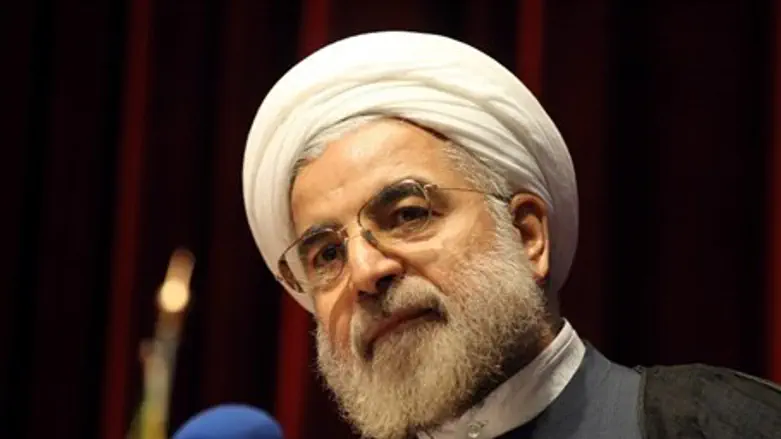
Iranian President-elect Hassan Rowhani was on the special Iranian government committee that plotted the 1994 bombing of a Jewish community center in Buenos Aires, according to an indictment by the Argentine government prosecutor investigating the case, The Washington Free Beacon reported on Wednesday.
The AMIA bombing, considered the deadliest terrorist attack in Argentina’s history, killed 85 and wounding hundreds more. The Argentine government had accused the Iranian government of planning the attack and Iran’s terrorist proxy Hizbullah of carrying it out. Numerous former and current Iranian officials are wanted by Interpol in connection with the bombing.
Former Iranian intelligence official Abolghasem Mesbahi, who defected from Iran in the late 1990s, testified that the decision to launch the attack was made within a special operations committee connected to the powerful Supreme National Security Council in August 1993.
According to the 2006 indictment, Mesbahi testified that Rowhani, who was then serving as secretary of the Supreme National Security Council, was also a member of the special committee when it approved the AMIA bombing, according to the news site.
“With regard to the committee’s role in the decision to carry out the AMIA attack, Moghadam stated that this decision was made under the direction of Ali Khamenei, and that the other members of the committee were [then-Iranian president Ali Akbar Hashemi] Rafsanjani, Mir Hejazi, Rowhani, Velayati and Fallahijan,” the indictment reads, according to The Washington Free Beacon.
Supreme Leader Ali Khamenei led the special committee, according to the indictment, and Khamenei and Rafsanjani made the ultimate decision to carry out the attack.
While Rowhani was allegedly present for deliberations about the planned bombing, it is highly unlikely he would have had approval authority, Iranian experts say, according to the paper.
“Rowhani’s power at that time comes directly from one individual, and that’s Rafsanjani,” said Reuel Gerecht, a senior fellow at the Foundation for Defense of Democracy.
“As far as that bombing was concerned, because Rafsanjani had to give his approval for that, there was no doubt Rowhani was aware of it, and obviously his approval’s not necessary,” Gerecht continued. “He’s a subordinate. But he certainly would have been aware of all the discussions that led to the attack.”
Gerecht said that Rowhani’s precise role in the attack has not been determined, there was “nothing in Rowhani’s background that would suggest to you he has any moral qualms about bombing the enemies of the [Islamic] Republic.”
“In all probability, we would have heard about it if [Rowhani] had risen up [at the meeting] and said ‘Don’t do that, it’s a disgrace,’” said Gerecht, according to the Free Beacon. “We would have known that.”
